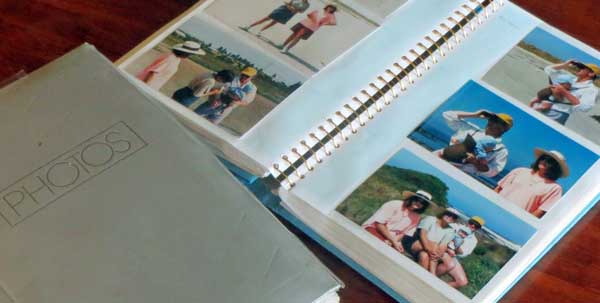Research from Edith Cowan University’s (ECU’s) Dr Donell Holloway and Professor Lelia Green explores how images previously found in the family photograph album are now likely to be located on the screens of phones and tablets, and how that jeopardises a family’s photo archive.

Families are outsourcing the task of creating, curating, sharing and archiving family memories to social networking sites.
Dr Holloway said Facebook has radically transformed the way we share our family memories and extended the networks of people that we share our memories with.
‘There are positives to sharing family memories on Facebook, such as the ease at which photos can be instantly uploaded.
‘And in some ways it’s great for family connections and sharing memories, but there are drawbacks,’ she said.
While avoiding too harsh a criticism of digital archiving of images on Facebook (no-one wants to be accused of being a neo-Luddite!), the research paper concludes: ‘Another 25 years will demonstrate whether the everyday confidence that Facebook users have in the permanence of the digital family album is justified.
‘Those people who painstakingly scan selected images into an annual family newsletter, and circulate hard copy accounts of identity creation and memory making may yet be grateful that they did not trust all of their treasured pictures to a virtual family album.
Losing photos
Dr Holloway, a senior lecturer with ECU’s School of Arts and Humanities, said using Facebook as a family photograph album might put the longevity of precious photographs at risk because stored data might not be as safe as the general public tends to assume.
‘Your account could be hacked, banned or someone might even hijack your password, meaning you no longer have access to your account. Also the terms and conditions of Facebook change every six months so ownership, storage or archiving rights might be reduced or taken away,’ she said.
‘On top of that, because Facebook now receives around 1 billion images per week the quality of the stored images are a real infrastructure problem. They use image compression so if you want to retrieve your photos at a later date they won’t be the same quality as they were before,’ Dr Holloway said.
Beware the overshare
Dr Holloway said parents are grappling with a new issue of disclosure management when they are deciding what to share online but they should consider their children’s digital footprint before they post.
‘The move away from the hard copy family album means parents now need to think carefully about what to post online and how they curate and present their children. Oversharing photos and details online can have ramifications for children in the future,’ she said.
Dr Holloway said this is of particular concern for children who are too young to understand or consent and in some cases not even born yet, for example when ultrasound images are posted.
‘It’s something for new mums to think about because we know that 98 percent of new mothers are putting photos of their babies online.
‘It’s a stage where using Facebook as a family photograph album really ramps up, with the first new baby in particular,’ Dr Holloway said.
‘Most parents think carefully and cautiously about what to post and not to post. A lot of parents are asking their children about what they are happy for them to post and also allowing the child to choose the image.
‘That’s especially important as children get older. They like to have that agency and sense of decision making on their own and not just have their parents showing everything to the world,’ she said.
– The research, ‘Mediated memory making: The virtual family photograph album’ was recently published in The European Journal of Communication Research. It uses data from interviews with Australian children and their parents over the past four years as part of two Australian Research Council funded research projects investigating children, families and their internet use.





Be First to Comment